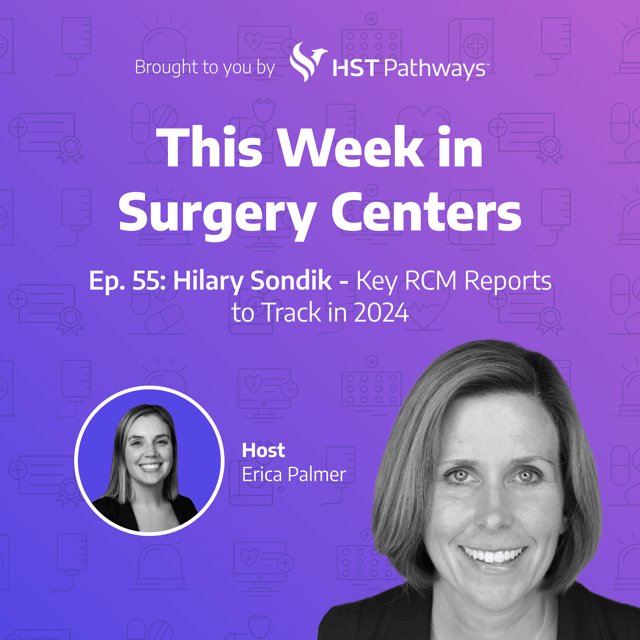

Hilary Sondik is the Executive Vice President of Operations at Surgical Notes, and today we are doing a deep dive into the key revenue cycle management (RCM) reports that every ASC should be tracking in 2024. We’ll break it down by frequency, so we’ll lay out what reports you should be running daily, weekly, monthly, and annually, and then Hilary will spend some time sharing the positive impacts you’ll see on your revenue cycle by doing so.
Instead of our usual News Recap, we have a brand-new segment in the podcast today called Data & Insights! Moving forward, we will alternate weekly between sharing the news and sharing a new piece of data and why that data matters. In September, HST released a State of the Industry Report with so many insights & data points & KPIs, so we thought this would be a great way to break down those key pieces of data and share them in bite-sized chunks. So today, we’ll kick off this first segment by diving into the Average Pre-Authorization Rates we’re seeing so you can see how you compare to your peers.
Resources Mentioned:
- Next-Generation ASC Analytics in Action
- HST’s State of the Industry Report (jump to Patient Journey: Pre-Day of Service!)
Brought to you by HST Pathways.

Hilary Sondik is the Executive Vice President of Operations at Surgical Notes, and today we are doing a deep dive into the key revenue cycle management (RCM) reports that every ASC should be tracking in 2024. We’ll break it down by frequency, so we’ll lay out what reports you should be running daily, weekly, monthly, and annually, and then Hilary will spend some time sharing the positive impacts you’ll see on your revenue cycle by doing so.
Instead of our usual News Recap, we have a brand-new segment in the podcast today called Data & Insights! Moving forward, we will alternate weekly between sharing the news and sharing a new piece of data and why that data matters. In September, HST released a State of the Industry Report with so many insights & data points & KPIs, so we thought this would be a great way to break down those key pieces of data and share them in bite-sized chunks. So today, we’ll kick off this first segment by diving into the Average Pre-Authorization Rates we’re seeing so you can see how you compare to your peers.
Resources Mentioned:
- Next-Generation ASC Analytics in Action
- HST’s State of the Industry Report (jump to Patient Journey: Pre-Day of Service!)
Brought to you by HST Pathways.




















